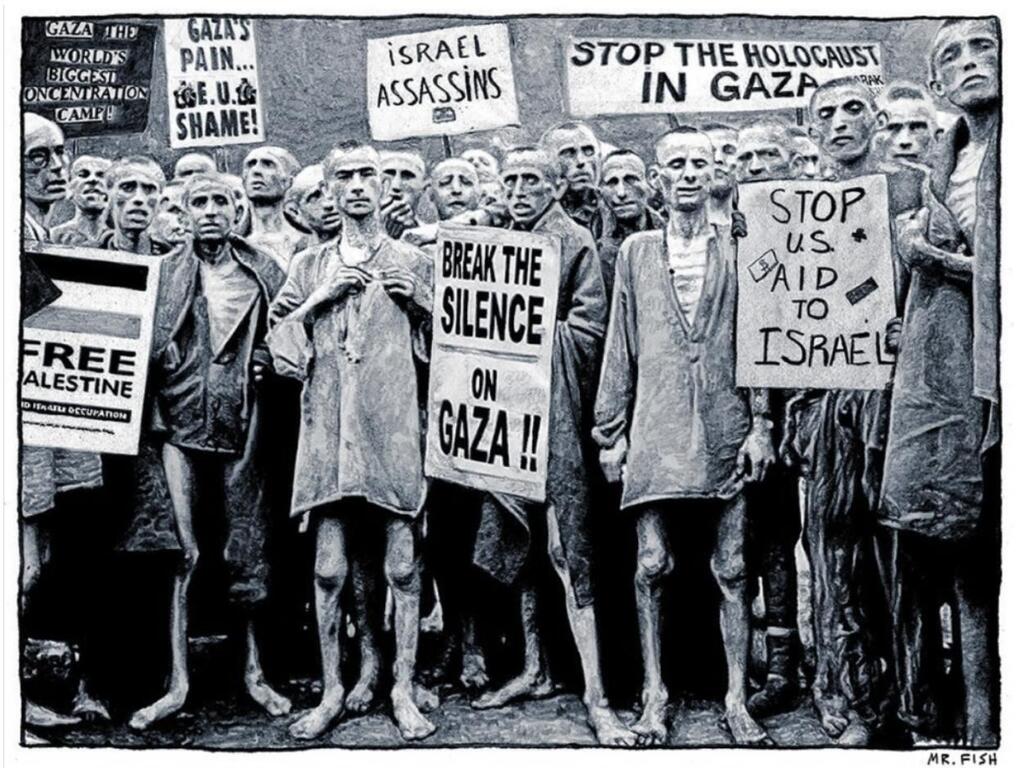Getting your Trinity Audio player ready...
The University of Pennsylvania has fired a lecturer in the communications program who published a series of cartoons widely condemned as antisemitic, a year after the university defended his work on free speech grounds. The dismissal follows mounting public pressure and threats from the Trump administration to cut federal funding to the Ivy League institution.
Dwayne Booth, known by his pen name “Mr. Fish,” was employed at UPenn’s Annenberg School for Communication. He announced his termination in a social media post, saying the university cited “budgetary” reasons but accusing academic institutions across the U.S. of yielding to political pressure.
“Universities across the country have cooperated with efforts led primarily by Republicans to silence students and faculty who voice harsh criticism of right-wing nationalism, genocide, apartheid, fascism, and specifically of Israel’s attacks on Palestine,” Booth wrote. He said his firing reflects a broader effort to suppress left-wing voices in academia.
Booth’s cartoons, which were published on his personal website, include imagery such as Zionists drinking “Gazan blood” from wine glasses, Jews in Nazi camps holding signs that read “Stop the Holocaust in Gaza” and “Gaza: The World’s Largest Concentration Camp,” and a Nazi flag replaced with a Star of David. A cartoon posted last week depicted Israeli Prime Minister Benjamin Netanyahu as “Beelzebub,” standing atop a pile of skulls in Gaza.
'Political artists have always had to confront the possibility that their work may be misunderstood'
The cartoons originally accompanied columns by former New York Times journalist and Pulitzer Prize winner Chris Hedges, who frequently compares Israel to Nazi Germany and accuses it of genocide. In one column illustrated by Booth’s work, Hedges wrote: “The Nazis sent their victims to death camps. The Israelis will send theirs to squalid refugee camps in other nations.”
Booth previously defended the cartoons, saying they were designed to be understood alongside Hedges’ text and were being misinterpreted in isolation. He warned that debates over the Gaza war were being distorted by conflating criticism of Israel with antisemitism.
“Political artists have always had to confront the possibility that their work may be misunderstood,” he said, arguing that equating the State of Israel with Judaism made meaningful debate impossible.
In February 2024, UPenn President Dr. Larry Jameson condemned the cartoons as “shocking” and containing antisemitic symbols but declined to discipline Booth at the time. “These political cartoons, published on a personal website, were not taught in class and do not reflect the views of the University of Pennsylvania or myself,” he said. “I find them reprehensible and inconsistent with our efforts to combat hatred.”
The American Association of University Professors, which had previously threatened legal action if Booth was disciplined, said it is reviewing the case. UPenn’s faculty union also defended Booth, saying the criticism against him was fueled by right-wing media “known for political provocation,” which resulted in threats and pressure on the university.
Get the Ynetnews app on your smartphone: Google Play: https://bit.ly/4eJ37pE | Apple App Store: https://bit.ly/3ZL7iNv
Booth criticized the university’s decision, saying he was losing $3,000 a month to “fascist monsters devouring academia.” He called the budgetary explanation “the same reason they gave Jesus before they crucified him,” adding, “I’m joking, of course.”
The Trump administration recently sent warning letters to 60 universities, including UPenn, threatening to withhold federal funding unless steps were taken to address antisemitism and pro-Palestinian protests on campus. Shortly after, it announced the cancellation of $400 million in grants to Columbia University and is considering freezing an additional $5 billion.
Columbia has since agreed to measures including banning face coverings, granting arrest powers to campus security, and appointing a vice provost to oversee departments focused on the Middle East, South Asia, and Africa, as well as its Palestine Studies Center.





